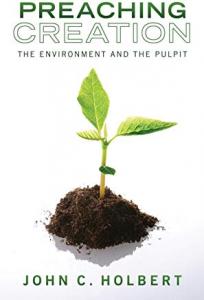 The impetus toward doing something serious about the threat of climate change appears finally to be building. This is very welcome news! Just yesterday, one of the 20 (!) announced candidates for the Democratic nomination for president, Beto O’Rourke of Texas, presented a $5 trillion (yes, with a “t”) plan to wean the USA off fossil fuels completely by 2050 and even suggested several ways in which he would pay for it. Most of the other candidates make regular comments about the imminent dangers of a warming planet, with one, the governor of Washington, Jay Inslee, putting climate change at the absolute center of his campaign. It is, he says, the reason he is running for president. In sharp contrast, the current occupant of the White House, he who ought not be named, when confronted last year with the dire results of his own government scientists concerning global warming, said, snidely and without any information or knowledge aforethought, “I don’t believe it.” Thus spake The Donald. Such idiocy is far more than reckless; it is increasingly dangerous and filled with malice and evil. Most polls say that an increasing number of Americans now believe that we all must act, and soon, to confront this malicious and pernicious monster we all have created, despite the foolishness that our current so-called leader continues to spew.
The impetus toward doing something serious about the threat of climate change appears finally to be building. This is very welcome news! Just yesterday, one of the 20 (!) announced candidates for the Democratic nomination for president, Beto O’Rourke of Texas, presented a $5 trillion (yes, with a “t”) plan to wean the USA off fossil fuels completely by 2050 and even suggested several ways in which he would pay for it. Most of the other candidates make regular comments about the imminent dangers of a warming planet, with one, the governor of Washington, Jay Inslee, putting climate change at the absolute center of his campaign. It is, he says, the reason he is running for president. In sharp contrast, the current occupant of the White House, he who ought not be named, when confronted last year with the dire results of his own government scientists concerning global warming, said, snidely and without any information or knowledge aforethought, “I don’t believe it.” Thus spake The Donald. Such idiocy is far more than reckless; it is increasingly dangerous and filled with malice and evil. Most polls say that an increasing number of Americans now believe that we all must act, and soon, to confront this malicious and pernicious monster we all have created, despite the foolishness that our current so-called leader continues to spew.
We preachers and teachers in the church must now direct a larger portion of our public work toward the devil of climate change. In this third installment of my brief essays, focusing on various biblical resources to help us do that, I turn today to the book of Job. As I have said in many of my earlier forays into this glorious book, it formed the basis for my doctoral dissertation nearly 45 years ago, as well as the subject of one of my books, and the foundation of an enormous amount of my thinking about the complex meanings of the Hebrew Bible. I absolutely love the book of Job in all of its richness and grandeur. Yet, even after reading it intensely for nearly 35 years, I had never taken its environmental power with any seriousness until my 2011 book (which in reality was written some years before that date), Preaching Creation. I have used the cover of this small book as the first image in this series of essays on the Bible and climate change.
I commend to your further reading two crucial resources to deepen and broaden the short insights I will offer here. They are Norman Habel’s 2009 book, An Inconvenient Text and Bill McKibben’s 1994 essay, The Comforting Whirlwind. Both of these authors have dedicated their writing as well as their personal lives to the various issues of the environment and can help you understand with more depth the problems we face and the hopes that the Bible can offer us. McKibben’s work on Job is especially suggestive, and I have learned much from it.
There is a vast storehouse of assets in Job to aid our biblical basis for talk about climate change, but I have time for only a few references. I point first to Job 38:25-27:
Who has cut a channel for the rain, a way for the sound of thunder,
To bring rain on a land without people, a wilderness where no human exists,
To satisfy a place of wasted desolation, to make the ground sprout grass?
This small passage in the midst of the mighty first speech of YHWH seems innocuous enough when set in the vast context of YHWH’s unusual answer to the Job who has demanded justice, and who clearly is little interested in wind, rain, snow, and ice, not to mention YHWH’s further catalogue of wild animals that follows. Job’s strident call that YHWH must be just on his behalf is answered by a long look at the weather, and a lengthy look at the slightly ridiculous ostrich (Job 39:13-18). Yet, this seeming non- answer on the part of YHWH is in fact a very real answer indeed. What better way to reply to the Job who imagines that his particular human concerns stand at the very center of the universe, and should then be of primary interest to YHWH, than to point him and us to the fact that all manner of things are happening in God’s great cosmos that we humans have no knowledge of at all! There are places, as Job 38:25-27 makes plain, that are completely devoid of human life but in fact burst with life over and again without human knowledge or aid. In short, God cares for us all right, but has larger fish to fry as well in a universe so vast as to overwhelm our selfish and puny demands.
But the speech of God says more than demand Job shut up from his arrogant selfishness, though it does perform that function to be sure. It also proclaims to Job that the cosmos is not the neat and easy place he imagines it to be, where God calmly and resolutely rewards the righteous and punishes the wicked. God’s universe is not like that at all! God’s cosmos is rich and gritty, beautiful and wild, magnificent and tough. It is in fact “red in tooth and claw,” as Tennyson famously described it, where eagles drink blood (Job 39:40) and lions crouch and wait for their prey (Job 38:40). While YHWH takes Job down a peg or two, bidding him move himself off the center of creation, God also shows him the rich panoply of the skies and the earth and calls him to joy. God’s tone in these speeches is as much invitational as it is sharp, as much loving as it is an enumeration of Job’s obvious shortcomings. Job and we need desperately to hear God fully here. God both puts us in our place as only a part of the creation God has made but also calls on us to celebrate the whole messy and delightful world at the same time. God deeply cares for us, but God also and always cares also for the entire cosmos. As John 3:16 so memorably puts it, God sends Jesus to make the entire “cosmos” (the Greek word in the passage) whole again, not just to save you and me in some private world where we are all that matters.
We need to hear YHWH speak to Job in those fabulous speeches at the end of the book, for God is also speaking to us, reminding us of our proper place in God’s creation and urging us to find joy in the wholeness and wonder of that creation. McKibben says it well when he claims, “Our environment is only a small part of something much larger.” We live on “a planet, filled with the vast order of creation. It is a buzzing, weird, stoic, abundant, reckless, haunting, painful, perfect planet. All of it matters, all of it is glorious. And all of it can speak to us in the deepest and most satisfying ways, if only we will let it” (The Comforting Whirlwind, 95). In that lyrical passage, McKibben reveals his own love for the creation. We need such a love, too, and we need to instill that love in our people if we are to dedicate ourselves to the work of healing our planet, a work that simply must begin now. It may not be too late, but it surely is very late indeed.
(Images from Wikimedia Commons)












